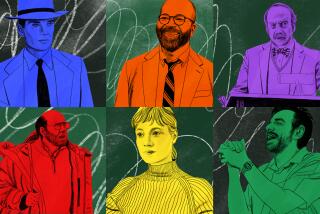NONFICTION - Jan. 26, 1992
- Share via
HORACE’S SCHOOL: Redesigning the American High School by Theodore R. Sizer (Houghton Mifflin: $19.95; 238 pp.). Introducing one of the key education programs he hopes we will implement nationally--”An Exhibition on the Emotions” wherein students paint, dance, sculpt or pantomime their interpretation of feelings such as fear, longing and joy--Theodore Sizer refers to it as an “educational target.”
He means “goal” or “objective,” of course, but critics of educational reforms harking back to the ‘60s such as former Secretary of Education William Bennett will delight in employing another definition. For them, the “Exhibition” is a perfect bull’s-eye: a program that could be concocted only in America, where students, as Bennett likes to quip, spend more time expressing how they “feel about algebra” than being tested on what they know about it.
And yet even those of us prepared to get all huffy about the schools’ focus on feelings rather than knowledge will find ourselves persuaded by Horace Smith, a fictional character based on the many high school teachers that Sizer, an education professor at Brown University, met while conducting his research. Sizer points out that the system in Horace’s school, based primarily on testing, does not so much impart knowledge as trap students in an insidious cycle of memorizing and forgetting. “Horace remembers a devilish experiment that a visiting consultant recently suggested,” Sizer writes. “Give students a test they took 12 months earlier, and see how they perform. What had they retained? Horace winces at the thought. Kids forget so much so quickly. Last year’s English is expected to be gone, and if we hold a student responsible for it, we are ‘unfair.’ ”
The fundamental difference between Bennett and Sizer seems to be that the former is reacting to the intellectually lazy but fiercely individual students of the ‘60s, while the latter is responding to suburban students of the ‘80s. Horace’s kids “get top grades on the English Advanced Placement exams,” Sizer writes, “but never read a serious piece of fiction outside or beyond school. They score high on the social studies tests, but later will vote for political candidates on impulse, if they vote at all.”
More to Read
Sign up for our Book Club newsletter
Get the latest news, events and more from the Los Angeles Times Book Club, and help us get L.A. reading and talking.
You may occasionally receive promotional content from the Los Angeles Times.









